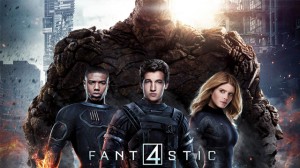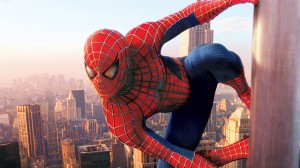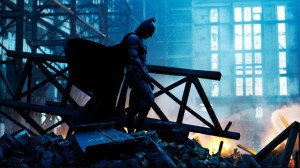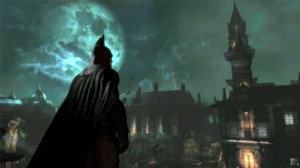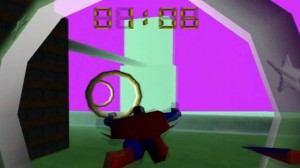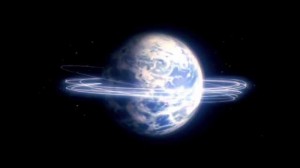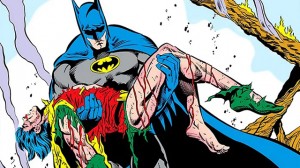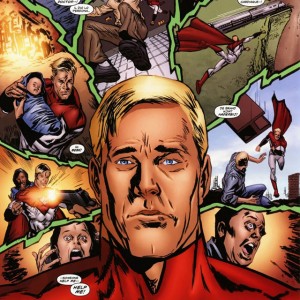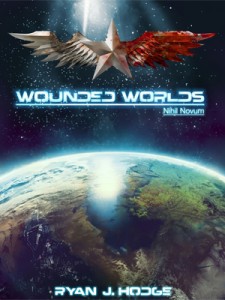-Ryan J. Hodge
For someone who enjoys a great story, is there anything better than a narrative that engages you from the very start? Imagine a world so rich you can almost smell the scents in the air, a delivery so clever it forces you to think in a way you never thought you would. I’m Ryan J. Hodge, author, and I’d like to talk to you about…Video Games.
Yes, Video Games. Those series of ‘bloops’ and blinking lights that –at least a while ago- society had seemed to convince itself had no redeeming qualities whatsoever. In this article series, I’m going to discuss how Donkey Kong, Grand Theft Auto, Call of Duty and even Candy Crush can change the way we tell stories forever.
What Videogames Teach Us About Writing for Superheroes
Post 2010 has been boom times for superheroes in cinema. Where before a ‘superhero movie’ was synonymous with ‘over-budgeted flop’, it’s now become an expectation for at least two or three to appear per year. From Avengers to Antman, moviegoers everywhere are rejoicing that Hollywood is now doing their favorite childhood heroes justice.
But why has it taken so long to do this, and why do videogames continue to lag behind in their portrayals of the defenders of truth and justice from across Marvel and DC? Well, it may come from a fundamental misunderstanding as to what a ‘superhero’ is.
Superheroes, as an abstract, have been around far longer than capes and tights. The legend of Hercules (or Heracles if you’re a stickler for cultural accuracy) is perhaps the earliest and best-known examples of an entity that could be described as a ‘superhero’ in the contemporary narrative traditions.
While certain aspects of his story (strangling his wife and children, for instance) tend to be glossed over, what is perhaps most remembered about Hercules is his incredible strength. However, the value in Hercules’ tale is not so much his strength; but, rather, his cunning.
Hercules’ strength, by itself, meant nothing against the Lernaean Hydra (hacking off one head only resulted in two more, after all). Only when that strength was combined with strategy did it come into play as an asset.
Here, I believe, appears the fundamental disconnect when it comes portraying superheroes. It is not the powers in themselves that are impressive; it is the fact that the hero is worthy of those powers that make them impressive.
So what makes a film like Steel (1997) so inferior to something like The Dark Knight (2008)? Ultimately, I argue, it comes down to proving the hero’s worth. Steel spends its runtime having Shaq beat up generic crooks to stop some kind of forgettable weapons deal where The Dark Knight spends its time showing the viewer why Gotham needs Batman.
So what does this have to do with videogames? Well, what is a videogame but a series of challenges one must prove he can overcome? Your characters might have amazing abilities (i.e.: Shooting fireballs, regenerative health, an ability to carry 200 pounds’ worth of equipment while sprinting) and yet it all comes to naught unless you can use these special abilities to solve the challenges.
In that sense, every videogame hero can be seen as a ‘superhero’. However, we’ll be looking at actual named superheroes as portrayed in videogames.
Perhaps the best example of games ‘doing it right’ can be attributed to the Arkham Series of Batman games (2009-2015). As Batman, players must stalk increasingly massive and intricate environments; utilizing a carefully balanced combination of stealth, skill, and technological superiority.
Our hero is always outgunned and outnumbered, however a room full of armed thugs is less a threat as it is a challenge. You see, the player doesn’t just stumble from room to room; idly slapping away his foes. He stalks his quarry, preys upon their fear, circumvents their countermeasures, and manifests himself as equal parts everywhere and nowhere at the same time.
It is for this reason that player’s feel like Batman when playing this game. They aren’t just steering the Caped Crusader around the environment; they are embodying the essence of his character.
Now lets shift from one of the best executed superhero videogames to one of the worst. Superman (1999) for the Nintendo 64 is reviled as perhaps the worst attempts to capture the Man of Steel in gameplay.
The ‘feats’ required of the player (fly through rings, intercept speeding cars) were not only tedious, but were rendered needlessly difficult by an arbitrary and extremely tight-fisted time limit. Now I will not, for a moment, defend the game design decisions; I do find myself intrigued as to why such tight restrictions on the character were given the go-ahead in the first place.
Was it pure thoughtless laziness on behalf of the production team? Probably. However, it is oddly in-line with the Blue Boy Scout’s character. In an episode of Justice League Unlimited (TV Series, 2004-2006) Superman exposits “I feel like I live in a world made of cardboard, always taking care not to break something, to break someone.” Superman has the opposite problem to Batman. Supes need not stalk his prey; he’s invulnerable (mostly).
The only way to ‘beat’ Superman is to misdirect him or to distract him from a non-invulnerable goal. Ergo, he cannot be beaten by throwing waves of opponents against him, but to pit him against the clock.
So if that is the ‘Essence of Superman’ why wasn’t “Superman 64” hailed as one of the greats to rival the Arkham series? Well, it’s still missing a key component. In the Arkham Series, or Spiderman 2 for the Xbox (also hailed as one of the greatest Spiderman games made), our heroes are put into sprawling environments with multiple unrelated objectives. There is a high degree of freedom –both the freedom to take action AND the freedom to fail. And it is that freedom that makes a superhero so compelling.
To a degree, the most compelling superheroes are defined not by their successes; but by their failings. Spiderman could not save Uncle Ben or Gwen Stacy. Batman could not save Jason Todd from the Joker. Even Hercules only took on the 12 labors to atone for killing his family.
What makes a superhero is not the ability to ‘get it right’ just once; but to suffer, train, and improve until he ‘can’t get it wrong’.
This is why I hold Man of Steel (2013) to be the best Superman film in decades. While many fans were perturbed by the rampant destruction of populated areas throughout; culminating with Superman’s killing of Zod, I hold that such a critical and blatant failure is a stark and sobering lesson for the man without limits. Indeed Metropolis may well have been made of cardboard for all the devastation it suffered; and it will be the desire to avoid repeating the many mistakes that allowed this destruction that will define Superman’s career from then on. In a sense, we might consider the crushing of Metropolis to the strangulation of Megara, and Superman’s efforts from then on will be his labors to atone.
However, there is one last point to make about writing superheroes. In the 2004 MMO, City of Heroes, (NCSoft) players are tasked with creating their own superheroes. They begin by battling low-level gangs and thugs, gain new powers, and gradually take on more challenging foes as the player becomes more powerful.
This introduces an interesting paradox as the low-level thugs never go away (and continue to assault and rob the citizenry), yet players will reach a point where going after them is simply not ‘worth’ it.
And so the final piece of the puzzle is placed: what makes a ‘superhero’ isn’t just incredible powers, nor the cunning to use them, nor the tragic misjudgments; it’s the fact that –no matter what- no one could do it.
This point is illustrated beautifully in Mark Waid’s run of Irredeemable (2009-2012) wherein a Superman analog (called the Plutonian) is driven insane by the impossible responsibility of protecting the world.
There was always someone who needs saving, always some problem that needs solving, always some need for a very special person to do the impossible. So don the cape and cowl and walk a mile in someone else’s spandex. Who knows? It just might make you a better writer.
Ryan J. Hodge is a science fiction author and is a Games Industry veteran. His latest book, Wounded Worlds: Nihil Novum, is available now for eBook & Paperback.
You can now follow Ryan on Twitter @RJHodgeAuthor


